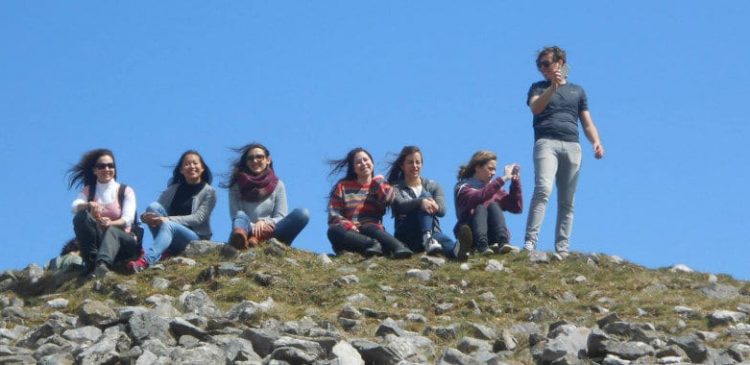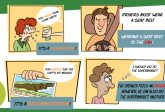Will and Going To for Intentions and Plans

At the Central School of English we can see how dedicated our students are in their desire to speak English fluently and this blows us away! We understand that it can be difficult sometimes but we want you to know that we are always here to help you so if you have any grammar questions that you would like help with, please be sure to ask one of our expert and fully qualified English teachers!
As you know our English classes are in the morning, afternoon and evening so if you are an FCE, CAE or Callan Method student studying English with us in the centre of Dublin make sure to approach us with any questions you might have.
If you have come across a piece of grammar or vocabulary that has you feeling totally confused we urge you to hang in there!!We hope that this blog and the grammar and vocabulary that we practice here will help you leave no stone unturned in your journey towards speaking English fluently.
We suggest that you read through the blog and go through the grammar and vocabulary exercises underneath to check if you have taken in all the new information correctly. We hope that what you read in the blog will combine with what you are learning in your classes at the Central School to help you get by in Dublin until you are fluent in English! If you are a past student of the school and have kept up your studies after you left us we hope that our blog will help you to remember everything you learned when you were a student with us at Central School!
This blog looks at the future and the constructions going to (+infinitive) and will (+infinitive). After reading this blog you should have an understanding of the differences between these two structures and how we use them to speak about the future.
When do we use the structure to be going to (+ infinitive) to speak about the future?
We use the structure to be going to (+infinitive) to communicate a future intention. An intention is something that we want to do in the future.
For example: If I am walking down the street and see an advertisement for a concert of a band that I really like I might think to myself that I am going to go to that concert. However, at this point this is something that I want to do. I have not bought a ticket to the concert yet. I have not arranged to have an evening off work so that I can go to the concert yet. I have not asked any of my friends if they will come with me to the concert.
When I want to communicate a future intention (something I want to do in the future) I can use words like maybe/ perhaps and possibly. These all let the listener know that I am not 100% certain about my actions for the future, rather I am communicating an intention for the future.
Example:
What are you doing this weekend?
I don’t know. I am really tired so maybe I am going to go to bed early tonight and then possibly I am going to go for a walk tomorrow
When do we use the structure will + infinitive to speak about the future?
We use the structure will + infinitive to communicate our actions in the future. When we use this structure we communicate that we have made no plans for the future and that we have decided what our future actions will be at the moment of speaking.
Example:
If your telephone starts to ring in class what will you do?
Will you answer your phone?
Will you switch your phone off?
Will you turn your phone to silent mode and call the person back later?
Will you excuse yourself and leave the classroom to take the call?
We use the structure will + infinitive in this situation because the person has not made a plan. If your phone rings in class you make a decision about what to do at that time.
Idioms
Blew me away: when something blows you away you are extremely impressed by it
Example: I wasn’t really interested in the band before I saw them in concert but after seeing them perform live I am a huge fan. They really blew me away with their energetic performance.
Hang in there: wait and be patient
Example: I didn’t know if I would ever reach the end of the race. I was exhausted, my legs felt like jelly but I hung in there and eventually I could see the finish line.
Leave no stone unturned: to do everything you can to achieve your goal
Example: She is a really determined person. She left no stone unturned in achieving her ambition to become the first Irish Olympic gold medalist in boxing.
Phrasal Verbs
Come across: To find by chance
Example: I was browsing for a film online last night when I came across an interesting documentary about the environment. I think you should watch it – you will really like it.
Take in: To understand (the meaning of)
Example: His accent was very thick and I couldn’t take in what he was saying.
Keep up: To continue/ carry on
Example: I started to learn English four years ago and since moving to Ireland I have kept it up in the Central School of English on Talbot Street. I study a mix of general English using the Callan method and I also study for the FCE exam one day per week.
Get by: To manage/cope
Example: When I moved to Ireland I found it really difficult to get by because I didn’t have a job or a lot of money or even a place to live. Now I have a job and I live in a house with three English language students who are my friends so I have no problems getting by.
Complete the following sentences to practice the grammar that you have learned.
- Where do you think you _________________go on holidays this year?
- I bought these flowers for Paula to say sorry. Do you think she ______________like them?
- I am studying to speak English because in the future I hope I _______________for an multinational company. I am not sure which company because I haven’t decided yet.
- I am not sure how I will celebrate my birthday this year but it is possible I ________________ hold a party in my house. I held a party last year and it was so much fun.
- Someone is knocking on the front door. What ___________I do?
Complete the following sentences to practice the idioms and phrasal verbs that you have learned.
- It took them a long time to reach the top of the mountain but they ____________and reached the top eventually.
- Where did you buy those gloves? They are so pretty!! I _____________ in a second hand clothes shop one day. They are really nice, aren’t they!?
- When I was on holiday I ______________ using a phrase book to communicate with people. It was helpful because it had useful phrases like asking for directions and saying please and thank you.
- Maria took English classes five days a week and studied at home after each class to learn English. She really __________________in becoming fluent.
- I started doing yoga when I was a student in university and after I finished university I ______________because I found it really relaxing. I have been doing it for over ten years now.
- I love reading books by that author. Each story he writes _________________
- I was so tired in class today that I couldn’t ______________ with the other students. I will have to get some sleep tonight and go into class with more energy tomorrow!
Thank you for reading our post. You’ll find more English grammar tips elsewhere on our site and if you’d like information on our English courses in Dublin, please do not hesitate to contact us.




